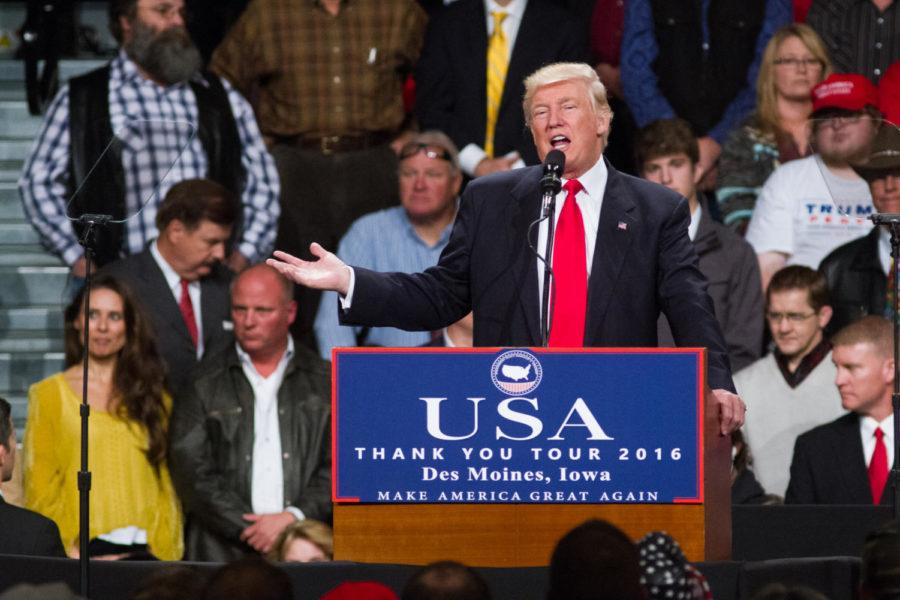Eight countries affected by new travel ban
President-elect Donald Trump speaks during a rally as part of his USA Thank You Tour, in Des Moines during the evening of Dec. 8. Trump spoke about the general election, how he would repeal Obamacare, bring jobs back to the US, and reform care for veterans.
September 24, 2017
The Trump administration announced Sunday travel bans will be placed on eight countries including Chad, Iran, Libya, North Korea, Syria, Venezuela, Yemen and Somalia.
This follows a travel ban, announced in January, placed on Libya, Syria, Iran, Somalia, Sudan, Yemen, and Iraq before it was removed in March. The original travel ban led to protests and legal debates over discrimination.
The additional restrictions will take affect on Oct. 18.
“As president, I must act to protect the security and interests of the United States and its people,” Trump said in his presidential proclamation. “I am committed to our ongoing efforts to engage those countries willing to cooperate, improve information-sharing and identity-management protocols and procedures, and address both terrorism-related and public-safety risks.”
Like the previous travel ban, those with “bona fide” connections to a person or entity in the United States — including family members or offers of employment — are allowed to travel to the U.S, according to the White House website.
Current visa holders will not be affected by the ban either.
Trump’s presidential proclamation states the eight countries come from a list of 200 evaluated by Secretary of Homeland Security Elaine Duke, in consultation with Secretary of State Rex Tillerson and Attorney General Jeff Sessions.
















